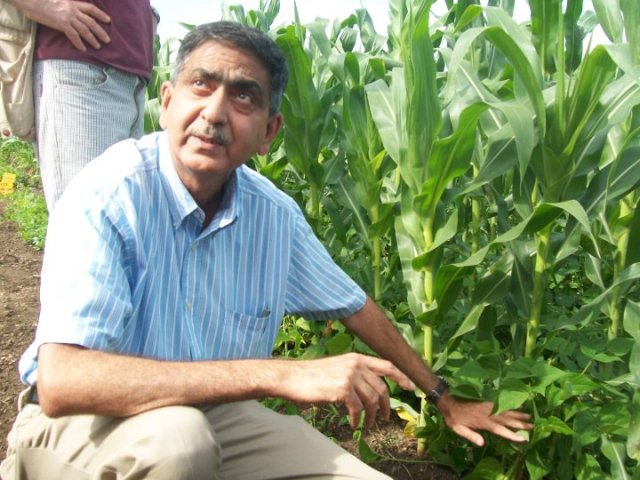Push–pull technology: using plants to deal with pests and weeds
With his team at the International Centre of Insect Physiology and Ecology (ICIPE) in Kenya, and colleagues at Rothamsted Research in the UK, Professor Zeyaur Khan uncovered the chemical and ecological relationships at the heart of an innovative system: push–pull technology.
 "I am happy that I have devoted my life to developing and adapting push-pull, and helping to bring food security to Africa. My aim is to reach at least 10 million people with the technology, while expanding the science behind push–pull to more cropping systems and different agroecosystems."
"I am happy that I have devoted my life to developing and adapting push-pull, and helping to bring food security to Africa. My aim is to reach at least 10 million people with the technology, while expanding the science behind push–pull to more cropping systems and different agroecosystems."
More than 96,000 farmers in Kenya, Uganda, Tanzania and Ethiopia have already adopted push–pull technology to face with striga weeds and stemborers pests, which can cause complete yield losses, estimated to cost US$14 billion each year in sub-Saharan Africa, and affecting more than 40%t of its arable land.
Maize, for example, is grown with two companion plants, desmodium and Napier grass, which together tackle stemborers and striga. Desmodium, grown between the rows of maize, acts as a repellent plant, driving stemborers from the cereal crop (the ‘push’). Napier grass, planted as a border to the plot, acts as a trap plant, attracting stemborers (the ‘pull’). As an additional benefit from the technology, the companion plants provide nutritious, high-value animal fodder, which farmers can sell or feed to stall-fed dairy animals. This approach, helps farmers increase food production and raise farm income without the need to buy pesticides and fertilizers. This is a perfect example of a practical, affordable, low-input production system and with significant impact on the livelihoods of the poorest African farmers.
Dr Khan has built an extensive network of partners to ensure sustained dissemination and uptake of the technology among poor communities. He has also trained over 50 PhD and MSc graduates, mostly Africans.